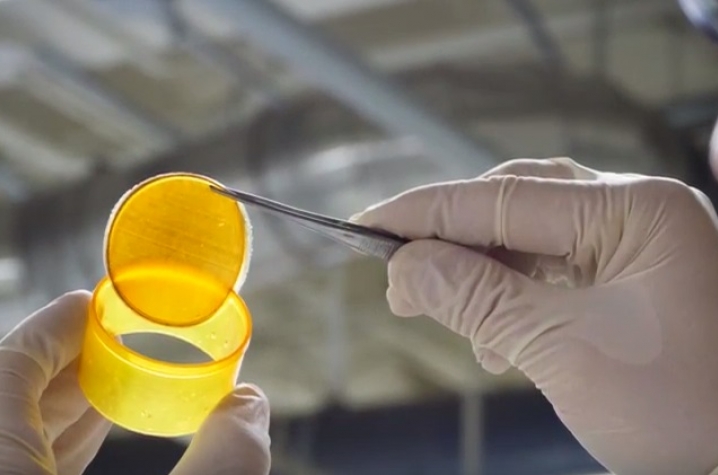What's Next: Engineering Better Drug Delivery

.
LEXINGTON, Ky. (Aug. 18, 2015) — Tom Dziubla, Gill Associate Professor in the Department of Chemical and Materials Engineering at the University of Kentucky, studies antioxidant polymers, working to answer the question, "Can we take a material and develop it from things that are antioxidant and turn it into a biocompatible material?"
Why? So we can treat a number of oxidative stress diseases, where antioxidants are believed to be beneficial.
Unfortunately, as Professor Dziubla said in the video above, "There's been a lot of clinical trials with antioxidants that haven't gone anywhere and it's … the antioxidant paradox. We see great effects in cells. We see good effects in animals, but we see it fail in humans; the question is why?"
Dziubla, who is also a member of the drug discovery, delivery and translational therapeutics research group at Markey Cancer Center, believes the issue lies in pharmacology; antioxidants are not reaching the areas in cells necessary and for the duration needed to produce the correct response. "Our polymers can actually overcome both of those limitations," he said.
Dziubla and his research team are taking natural antioxidants — such as dietary antioxidants from spices and green tea extract — and turning them into polymers. "As the polymer degrades, it's releasing that initial component naturally or slowly over time locally to get the response out that we want," Dziubla said.
Dziubla's work is featured in the above video, produced by the Vis Center as part of its "What's Next" series. It may also be viewed at "Reveal," the official website for UK Research Media, at http://reveal.uky.edu.
MEDIA CONTACT: Whitney Harder, 859-323-2396, whitney.harder@uky.edu




